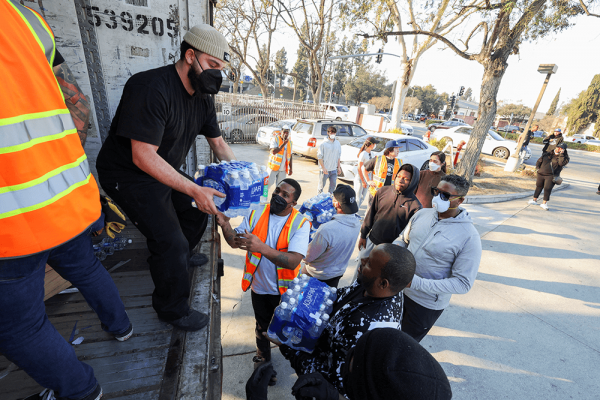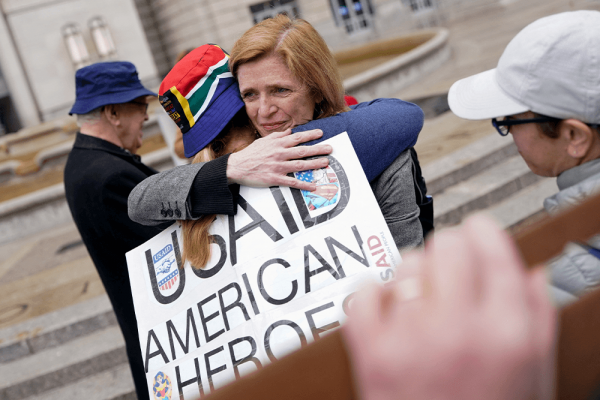Late last month, it was reported that the U.S. and the Taliban have agreed in principle to the framework of a deal that could potentially end the 17-year war that began in 2001 when the U.S., with the strength of NATO forces, invaded and began occupying Afghanistan. In the lead up to war, leaders cited concerns about human rights, specifically women’s rights.
As part of the commitment to end the conflict, the Taliban has vowed to prevent the country from being used an international hub for terrorism-related activities. And this is noteworthy, considering that such a promise was a longstanding demand after the 9/11 attacks on the U.S. that ultimately led to the invasion and occupation we see today. In exchange, the Taliban expect a full troop withdrawal before agreeing to a ceasefire and here, another key player — the Afghan government — is in consultation.
But there is one other very important aspect that needs solid commitment: guaranteed support for protecting and furthering women’s rights.
Since 2001, the U.S. has spent about 45 billon per year on military forces, logistical support, and economic aid. Such aid also includes support from USAID — specifically toward maternal and child health care.
“People who say the U.S. has not done anything or that Afghanistan has not progressed since then have no idea what happened in Afghanistan in the years before the invasion,” Habiba Ashna, an activist, writer, and the head of Kayenat Translation and Publication Centre, told Sojourners.
Ashna was born in the Nangrahar province of Afghanistan and lived there until the Taliban began bombing the area. Her family then moved to Pakistan. It was only after the U.S. invasion, and the relative downfall of the Taliban, that the family moved back to Afghanistan. In 2006, when she was 17, she moved to the U.S.
Ashna reflected on the time of civil war — 1989-2001 — after the Soviet Union withdrew from Afghanistan, saying there was a rise in radicalism and the state of women’s rights went downhill.
“The so-called Jihad movement brought a bad change to a moderate country with a tolerant culture,” Ashna said.
Sentiments of social progress also find resonance among other Afghan women.
Today, many women in Afghanistan are teachers, doctors, educationists, activists, and “they are proud to be women in major cities,” says Pashtana Durrani, founder and executive director of LEARNAfg, a grassroots nonprofit organization that aids women with education, accelerated learning, and in stabilizing their businesses.
But this is not true across Afghanistan, especially for those women who live in areas that are still under the control of the Taliban. And without the inclusion of dialogue on the rights of women, the supposed peace talks wouldn’t go very far in changing the on-the-ground situation for about half the population.
“In these cities, women’s mortality rate is high … women die due to no health care,” Durrani said. Health care is a multifold concern ranging from the lack of trained doctors to non-availability of health care facilities in rural areas to logistical issues and societal pressures that make it difficult for a women to avail health care.
Access to education and work opportunities for Afghan girls and women is also a problem, as is noted by UNICEF — a news release in June 2018 stated, “nearly half of children aged between 7 and 17 years old – 3.7 million – in Afghanistan are missing out on school” and that “girls account for 60 per cent of the out-of-school population.”
Threats of violence also push families preventing girls from pursuing an education because they fear the kind of harassment they will face.
“What we all forget is that stopping girls from school or office will not keep them safe but it will limit their chances of having a better lifestyle,” Durrani said. “What we also forget is that if we stop going to schools and offices, the harassment and limitation will be normalized.”
While some of the lack in education is caused by social forces, there are also more concrete reasons: “Because of the decades of war, people did not get a proper education,” Breshna Musazai, an Afghan women, told Sojourners. “When there’s a war going on, you cannot focus on education. You only try to survive.”
On Aug. 24, 2016, gunmen attacked the American University of Afghanistan in Kabul. A total of 13 people were killed and more than 50 were injured. Musazai was one among the people who were seriously injured — she was shot three times in the leg. The attack, and Musazai’s personal story, were widely reported.
“Women don’t know the kinds of rights they have under the law … or even the kinds of rights they are given by their religion,” she said. “Education is important … awareness is important.”
The abuses women in Afghanistan face range from physical assaults to mental abuse — from cases of domestic violence to workplace harassment to verbal abuse and catcalling on the streets. According to Durrani, women in rural areas that are under the control of Taliban are beaten for reasons as ordinary as “walking to a clinic,” and suffer “honor killings for saying or doing something that will not be acceptable to their [the Taliban’s] limited minds” like “reciting poetries or talking to their male cousins.”
Durrani’s observations are concretized in a report published in November 2018 by The Asia Foundation, an international nonprofit development organization headquartered in San Francisco.
“Violence against Afghan women, including murder, beatings, mutilation, and acid attacks, remains widespread,” the report states. “The Ministry of Women’s Affairs reported an increase in violence against women over the past year, particularly in areas under Taliban control.”
The fears of women’s rights being ignored in the future are well founded. In 2014, Oxfam found that in 23 peace talks held between the Taliban, the Afghan government, and the international community from 2005 to 2014, “not one Afghan woman had been involved.”
“There’s no doubt that this [pursuing a peace deal with the Taliban] will affect women’s rights. What’s to be seen is to what extent,” Ashna said. “What I fear the most is that if the U.S. leaves, we will not have any backup support.”
Afghanistan’s institutions and its government lack stability today. Adding to the uncertainty is the fact that a militarily-powerful Pakistan is a neighbor.
“With the U.S. pursuing a peace deal, my only concern is that they will compromise on our rights just to ‘get the hell out of Afghanistan.’” Durrani said, adding that if they compromise now, women’s fate will be decided.
“Future generations will never forgive us as women and activists because we compromised or we didn't fight back when it was needed the most,” Durrani said.
Got something to say about what you're reading? We value your feedback!







